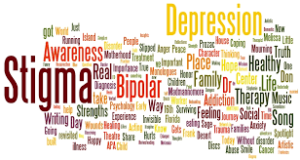04 Dec TPD & Mental Health and Illnesses
Suffering a Total and Permanent Disability (TPD) can weigh heavily on a family, both financially and emotionally, particularly if that person is the main provider for the family.
But it’s not just physical injuries or illnesses – such as a major accident, cancer, heart disease, and neurological disorders – that come under the TPD category. Certain types of mental illness, including post-traumatic stress disorder (PTSD), depression and severe anxiety are also covered by TPD insurance.
PTSD
PTSD is most common amongst people who are regularly exposed to traumatic events, such as those who work in emergency services and the military, but it can also be experienced by people from other walks of life who go through a traumatic incident, such as suffering an assault or witnessing a distressing event.
Anxiety
Severe anxiety episodes can lead to shortness of breath, sweating, and dramatic increase in heart rate, which can be completely debilitating.
Depression
Depression in its severest forms can make it impossible for a person to function properly, hold down a job, or even leave their home.
Our 2015 data showed that 19% of all the TPD claims paid out by TAL were for mental and behavioral disorders, equating to over $79 million in payments and representing 7.5% of the total paid claims across all TAL insurances. More recently, our 2016 data shows that of all TAL insurance claims paid for mental health, over a quarter of these were for TPD. Sadly, these figures demonstrate how major an issue our nation’s mental health has become.
It’s good to talk
Mental health used to be something that was rarely, if ever, discussed in public. Thankfully that has changed in recent years, and we are now generally much more open about discussing mental health issues.
This openness is critical in removing much of the stigma that used to be attached to mental illness, and thankfully so, given that at least 20% of all Australian adults are affected by a type of mental illness every year, and at least 45% of us will experience a mental illness at some point in our lives.
By removing the stigma attached to mental health, people feel more comfortable about sharing their issues and getting help, so shining a light on mental health and opening avenues of dialogue around it is really helping to save lives.
Mental Health Day
One such avenue is the upcoming World Mental Health Day, which takes place on October 10 2017, and is part of Mental Health Week, which runs from October 8-14 2017.
Part of the purpose of this day is to provide education on mental health issues so that commonly held misconceptions can be dispelled.
Everyone is also invited to make a mental health promise to themselves, which provides an opportunity to reflect on what steps we can make to improve our own mental health. This can be anything from getting more sleep, eating healthier, getting more exercise, or simply doing more of whatever makes you happy.
The importance of discussing mental health issues in an open, non-judgmental fashion cannot be underestimated, and initiatives such as World Mental Health Day play a key role in helping to reduce the toll of mental health issues in society.
If you suffer from a mental health issue and are seeking help, please speak to a reputable support service, such as Beyond Blue, who have various help lines available 24/7. It’s good to talk.



No Comments